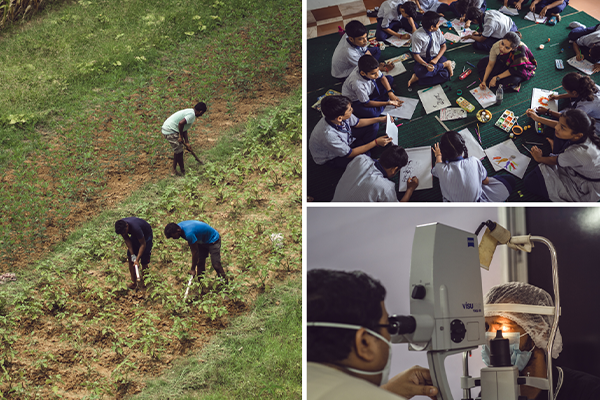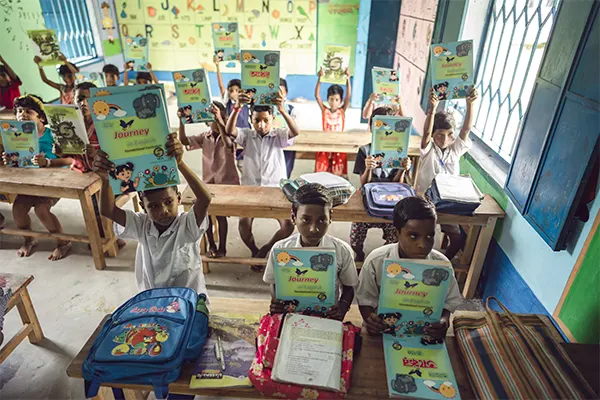Converted to an Opportunity — the HOW
A Unique innovative approach by empowering grassroot educators

Nanritam, a nonprofit organization, operating from a rural corner — from Baradanga village in Para block, Purulia District, West Bengal took up the challenge. Nanritam runs four major initiatives or verticals:
Under the Education Initiative, Nanritam runs a CBSE affliated English medium secondary school, Filix School of Education. The international award-winning, playful, activity-based and demonstrative pedagogy of Filix School was leveraged to launch Nanritam's most ambitious community out-reach program, Education for All.
The launch of Education for All (EFA), a foundational Literacy and Numeracy program for children the ages of 3-8, was triggered by the catastrophic effects of the extended Covid school closures, in remote rural and underpriviledged communities.
Our Approach
Nanritam through its deep-rooted network in the community (through its Eye Foundation and Covid Relief work), felt the need to urgently addess the learning loss experienced by these underpriviledged communities. It launched its Education for All (EFA) program, to identify, interate and empower various small/ large grassroot educators, from government, private and various NGO learning centers, including committed individuals and police community volunteers.
At some of these remote locations, these unconventional eduators are often the first, if not only, educator resourse for first generation school-goers. Empowering these educators is an important objective of EFA. The program imparts a curriculum, a library of books and videos, and a comprehensive teachers training and empowerment program. All designed to be contextual, sustainable and effective for the children of remote areas.
The program is conducted by in-person residential workshops, as well as continued online training, with a repeating cycle of mutual exchanges, mentoring and reiteration. And of course, all of this is provided FREE to the participants!!
